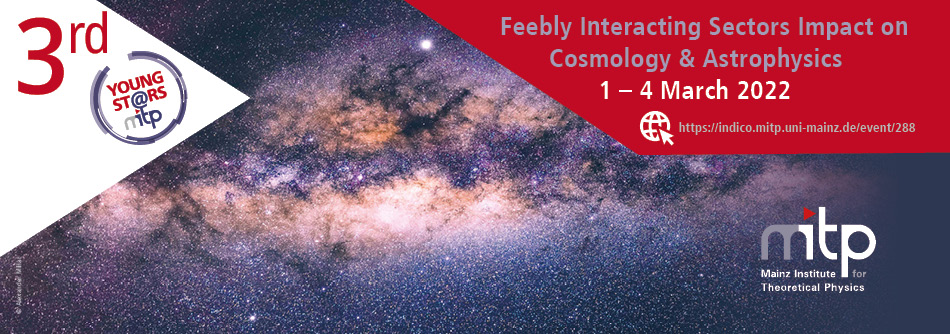Overview:
Different types of astrophysical environments—such as horizontal branch stars, the sun, supernovae (SNe), neutron stars, black holes—offer different guises to explore fundamental physics, and in particular feebly interacting sectors.
A collaborative effort between particle physicists, astrophysicists and astronomers is highly desirable. This interaction can help refine existing ideas, identify the most promising candidate theories and come up with new possible signatures from astrophysical objects.
The goal of this workshop is to bring together the relevant communities, paving the way for a new decade in fundamental physics.
Dates and time:
- March 1-4
- Daily at 4:00 PM CET (7:00 AM US PST, 9:00 AM US EST)
Venue:
- Online ZOOM (virtual)
- Connection information will be sent to participants
Confirmed speakers:
-
Asimina Arvanitaki (Perimeter Inst. Theor. Phys.)
-
Francesca Calore (Annecy, LAPTH)
-
Djuna Croon (Durham U.)
-
Igor G. Irastorza (U. Zaragoza)
-
Joachim Kopp (CERN and U. Mainz)
-
Rebecca Leane (SLAC)
-
Sasha Philippov (CCA, Flatiron Institute)
-
Georg Raffelt (MPI for Physics)
-
Benjamin R. Safdi (LBNL and UC Berkeley)
-
Oscar Straniero (INAF-Osservatorio Astronomico d'Abruzzo)
-
Irene Tamborra (NBI, U. Copenhagen)
-
Ken Van Tilburg (NYU and CCA, Flatiron Institute)

